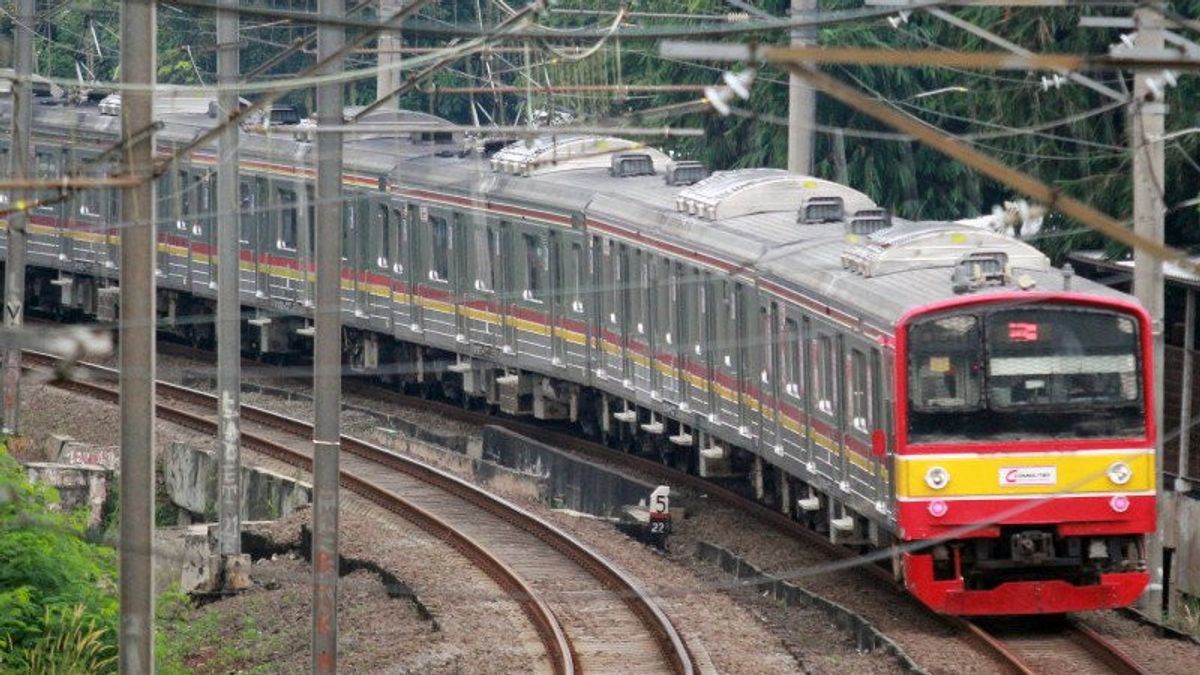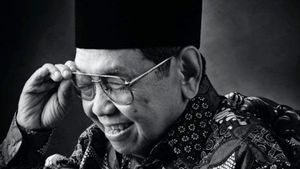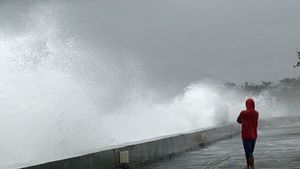YOGYAKARTA - The Coordinating Ministry for Maritime Affairs and Investment (Kemenko Marves) still has not approved the import of a used or non-new electric train (KRL). The decision refers to the results of a review by the Financial and Development Supervisory Agency (BPKP). So what is the reason the government has not approved the import of a used KRL?
"Currently it is not recommended to import this," said Septian Hario Seto, Deputy for Coordination and Mining at the Coordinating Ministry for Maritime Affairs and Fisheries, at a press conference in Jakarta.
Previously, PT KCI submitted a request for KRL imports from Japan. However, the government has not approved the request for a number of reasons.
Septian Hario Seto revealed that there are 4 main reasons the government rejects the import of used KRL. The four things that are considered are based on the results of the BPKP review. The following is the reason the government has not approved the import of used KRL.
The first reason why the government does not allow the import of used KRL is related to the development of the domestic railway industry. The import plan is considered not to support the development of the national railway industry.
This is based on the Regulation of the Minister of Transportation Number 175 of 2015 concerning the Standard for Technical Specification of the Normal Speed Train with Self-driving. In the rules contained, it is stipulated that the general requirements for the procurement of normal speed train facilities by self-driving, including KRL, must meet technical sepsification. One of them prioritizes domestic products.
Applications for KRL import dispensation from PT KCI were rejected by the Ministry of Trade (Kemendag) because the government focused on increasing domestic production. The government is also focusing on substitution of imports through Increasing the Use of Domestic Production (P3DN).
The third reason for refusing to import used KRL is because the goods to be imported from Japan do not meet the criteria. The criteria in question are as non-new capital goods that can be imported in accordance with Government Regulation Number 29 of 2021 and Permendag which regulates import policies and regulations.
In the PP and Permendag, it is stated that non-new capital goods that can be imported are non-new capital goods that cannot be met from domestic sources in the context of the industrial production process for export development purposes, increasing competitiveness, business efficiency, infrastructure development, and/or re-exporting or goods/equipment in non-new conditions in the context of recovery and rebuilding as a result of natural disasters, as well as non-new goods for other purposes in accordance with statutory provisions.
"So it has been mentioned earlier that (imports) can be done if they cannot be produced domestically," said Hario Seto.
The fourth reason why the former KRL import plan was rejected was because the fleet was still adequate. BPKP audit results show that the KCI fleet this year is still adequate than in 2019. In 2019, KCI has 1,078 units to carry 336.3 million passengers. Meanwhile, in 2023, KCI has 1,114 units to carry 237.6 million passengers.
This 'Overload' does occur during peak hour hours. But overall for occupancy in 2023 is 62.75 percent. In 2024, it is estimated that it is still 79 percent and 2025 is 83 percent. This is data from BPKP," said every Hario Seto.
Such is the review of the reason why the government has not approved the import of used KRL. In addition to the several reasons above, Hario Seto also conveyed findings about the estimated import costs of used KRL. He said that the reasonableness of handling and transportation costs from Japan to Indonesia submitted by PT KCI could not be believed because the calculation was not based on a price survey, but only based on the import cost of KRL was not only in 208 plus 15 percent.
Stay up to date with the latest domestic and other overseas news on VOI. You present the latest and most updated nationally and internationally.
The English, Chinese, Japanese, Arabic, and French versions are automatically generated by the AI. So there may still be inaccuracies in translating, please always see Indonesian as our main language. (system supported by DigitalSiber.id)













